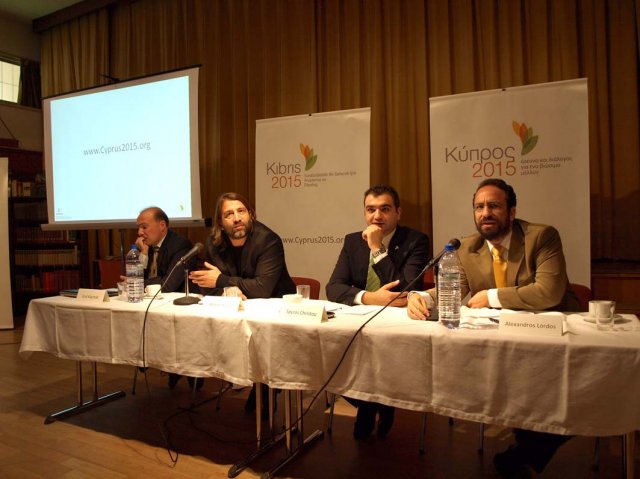‘Cyprus 2015’ launches next phase

The Interpeace programme in ‘Cyprus 2015’ is celebrating the launch of a next phase of work.
Interpeace’s presence in Cyprus dates back to May 2009, when the Cyprus 2015 Initiative was initially launched. This next phase signifies the sustainable presence on the island, which remains divided.
Cyprus remains divided with mistrust a key issue
Recent public opinion polls have shown that the current peace process takes place in an environment of pronounced mistrust between both communities.
There has also been a trend that negotiations on the Cyprus issue have been conducted without reference to the public of either community. This has carried the risk of making people feel that they are neither consulted nor informed about decisions which will affect their lives, leaving open the possibility that they will be presented a fait accompli, over which they have little choice.
Any political solution must accommodate lack of trust between the two communities
With this context, efforts to find a political solution to the problem will have to address these and other confidence gaps. This will contribute to ensuring the development of a public atmosphere that is receptive to the technical and political solutions that might be achieved through the direct negotiations, and prevent the repetition of a popular rejection.
One of the greatest challenges ahead is to ensure that a comprehensive solution enjoys broad societal ownership and that the people of Cyprus are properly prepared for a federal solution, understanding both the challenges and benefits this will bring.
Building on previous work
The ‘Cyprus 2015’ initiative will be building on previous research. While still focusing on a reputation as a provider of objective information to the public, this second phase will differ slightly. The previous phase the project emphasized the production of research outputs that could deepen decision-maker understanding of the priorities and concerns of Cypriots. The strategy for this phase is to put much greater emphasis on sustained ‘inclusive advocacy’. There will be communication throughout the process, with the broader population as well as with the decision-making elite through strategic targeted information flow.
‘Inclusive advocacy’ is key
Erol Kaymak, Research Co-Director of ‘Cyprus 2015’, explains one of the new feature of the programme: “The innovation is the emphasis on ‘inclusive advocacy’. That means that we are approaching other actors, institutions and organizations that work on the public concerns that we have identified in previous phases of the project - property and security. This strong network of high-level stakeholders aims to engage policy- and decision-makers. We’ll be making the decision-making process more inclusive.”
A more prominent focus on communication
Ahmet Sözen, Turkish Cypriot, Co-Director of ‘Cyprus 2015’, highlights the communications aspect: “The team has grown with Meltem Ikinci as Administration and Communications Officer and Georgos Fillipou as Programme Advisor. This reflects the increased emphasis that we are now putting on communications. All members of the team will engage in disseminating the results of our polls and research through editorials, interviews, radio, television, as well as through our online presence and social media.”
It’s all about getting the word out
“It is all about getting the word out. We want to inform decision- and policy-makers of what the people from both communities think. This is crucial for any solution to the conflict as both Greek Cypriots and Turkish Cypriots have to agree to the negotiation results in a referendum. We want to make sure that the people’s voices are being heard,” says Alexandros Lordos, Greek Cypriot, Co-Director of ‘Cyprus 2015’.
